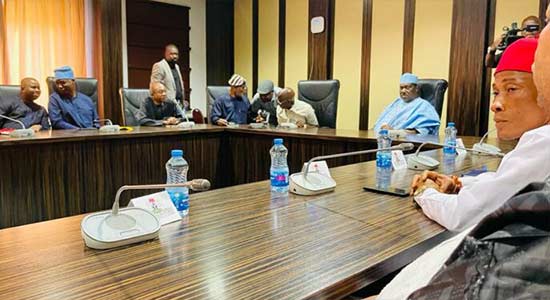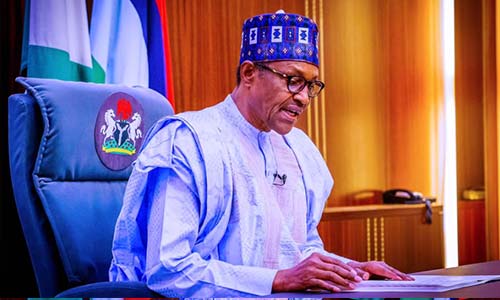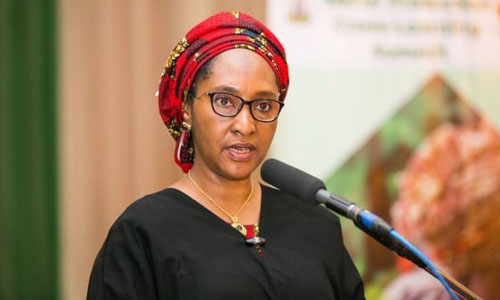THE EXECUTIVE 19/06/2023
Petrol Subsidy: Govt, Labour Resume Negotiation on Implementation Framework

As the Federal Government and labour unions return to the negotiation table today to resume talks over the implementation framework of resolutions reached on June 5, stakeholders have urged government to be sincere and come up with something tangible that the organised labour can work with.
They said a new deal should capture both workers in the formal and informal sectors of the economy, as well as other citizens not engaged in the nation’s workforce.
Noting that the atmosphere is already charged and filled with tension, they argued that the government should be magnanimous in ensuring an agreement that is substantial enough to cushion the effect of petrol subsidy removal.
The Guardian gathered that workers are already apprehensive, because since petrol subsidy was removed three weeks ago, nothing concrete has been put on the table to cushion the effect of the removal besides assurances.
Many are becoming more worried following the signing into law of the student loan, which they alleged had some stringent conditions, and the floating of the naira.
At the last meeting, former Speaker of the House of Representatives, Femi Gbajabiamila, had said the rounds of negotiations between the Federal Government and labour unions ended with a resolution to reconvene today, June 19, to agree on the implementation framework of the resolutions reached.
The resolution was signed by the President and Secretary of the Nigeria Labour Congress (NLC), Joe Ajaero and Emma Ugboaja, respectively; President and Secretary of the Trade Union Congress of Nigeria (TUC), Festus Osifo and Nuhu Toro, respectively, and endorsed by the Permanent Secretary of the Ministry of Labour and Employment, Kachollom Daju.
Gbajabiamila said the Federal Government had promised to provide a framework for the maintenance of roads and expansion of rail networks across the country.
He said the joint committee would assess other demands submitted by the organised labour to the Federal Government during today’s meeting, adding that NLC’s agreement to suspend the strike notice was to enable further consultations, as well as continue ongoing engagements to secure closure on the resolutions.
Already, the National Economic Council (NEC) at the weekend, recommended palliatives for workers and vulnerable groups to ameliorate the harsh effects of fuel subsidy removal.
Governor Bala Mohammed of Bauchi State had disclosed that the Council considered recommendations from the National Salaries Income and Wages Commission to pay N702 billion as cost of living allowance to civil servants as part of its intervention plans.
He said the N702 billion was a suggested sum for labour to cushion the effect on workers on a new allowance that will be tagged cost of living adjustment allowance.
The meeting, presided over by Vice President Kashim Shettima, also announced the setting up of a committee to work out, within two weeks, the modalities for organising and distributing the palliative.
This is just as the TUC, at the last meeting, demanded the immediate implementation that minimum wage should be increased from its current N30,000 to N200,000 before the end of June 2023, with consequential adjustment on Cost of Living Allowance (COLA), like feeding, transport, and housing, among others.
Among the 14 items presented, it said a representative of governors would be a party to the communiqué and all the governors must commit to implementing the new minimum wage.
It demanded tax holidays for employees both in the public and private sector that earn less than N200,000 or $500 monthly, insisting that petrol allowance should be introduced for those earning between N200,000 to N500,000 or $500 to $1,200 yearly, whichever is higher.
It demanded that the Federal Government should provide mass transit vehicles for all categories of the populace and put in place an immediate review of the National Health Insurance Scheme to cover more Nigerians.
For the medium term, the labour centre demanded the deployment of Compressed Natural Gas (CNG) across the country, in line with the earlier promise made by the government. It said the framework and timeline would be developed and agreed by both parties.
It added that labour and government would design a framework that will be geared towards reducing the cost of governance by 15 per cent in 2024 and 30 per cent by 2025.
Setting the agenda for today’s meeting, First Vice President of TUC, Dr. Tommy Okon, said the sacrifices of workers for the past three weeks have been enormous, stating that workers were ready to cooperate with the government.
Okon, who stressed that the patience of labour would not be dragged too long this time around, said he was hopeful that government would not only agree to the proposals, but the agreement reached be followed by prompt action, recognizing the fact that there has been trust deficit in past years between the government and the citizens.
“This is a new government and we do believe that the agreement that would be reached would be honoured and well implemented, because it is very difficult for workers to go to work,” he said.
When asked if labour was satisfied with the N702 billion as cost of living allowance to civil servants as part of the intervention plans, Okon said: “We need to see the workings before we can draw a conclusion. We cannot just look at the humongous amount and say it is uhuru. Until we see the breakdown and look at it from all the indices, this will form the basis of agreeing or disagreeing.
“We do hope for a fruitful discussion and we will continue to build the confidence together. Government should know that labour seems to be stubborn because of the trust deficit that we had with the government over the years.”
On the union’s proposed N200,000 as minimum wage, Okon, who is also the President of the Association of Senior Civil Servants of Nigeria (ASCSN), said: “It is a proposal we put forward to them. By the time we get there, we will also look at what they will come up with and negotiation will start. It is not just on the wage; there are other issues that need to be looked at. That is one aspect of what we put forward. Other allowances must also be brought to the fore for us to arrive at a logical consideration.
“Our target is to ensure that there are living allowances for workers before we zero into the issue of minimum wage, which is a constitutional matter. We are fighting for quality allowances that can cushion the effect of subsidy removal then when we go into negotiation for minimum wage, then we take it up from there.”
NLC Lagos Chairman, Funmi Sessi, said labour’s major expectation is to ensure that the nation’s four refineries are repaired and put to optimal use, as well as a major shift from Premium Motor Spirit (PMS) dependent vehicles to Compressed Natural Gas (CNG).
“We should not have a sole individual for the importation of PMS. But if we have the refineries working, the market will not solely be for an individual to determine the market price,” she said.
For public affairs analyst, Jide Ojo, the government should focus on interventions around housing, health, education, and motorable roads for those in rural areas to bring in their agricultural produce.



